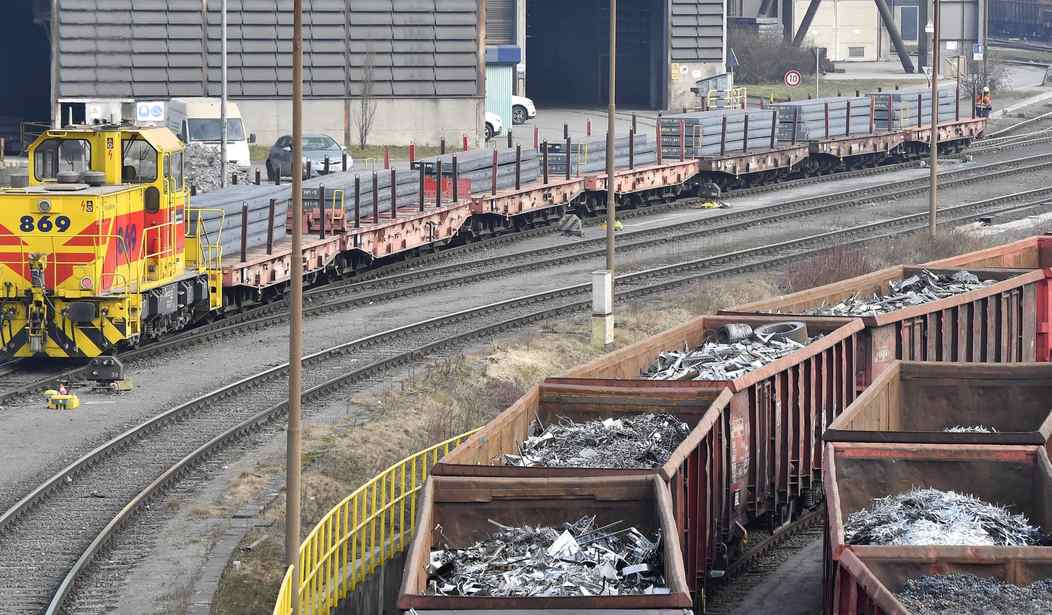President Trump’s trade advisor argued Sunday that there would be no “downstream effects” from the commander in chief’s decision to slap a 25 percent tariff on steel and 10 percent on aluminum.
“Pretty much all of you will immediately be expanding if we give you that level playing field, if we give you that help. And you’re going to hire more workers, and your workers are going to be very happy,” Trump said at a meeting last week with steel and aluminum industry representatives, promising language on the action sometime this week.
After criticism from Republicans and a dip in the stock market in reaction to his announcement, Trump tweeted Friday, “When a country (USA) is losing many billions of dollars on trade with virtually every country it does business with, trade wars are good, and easy to win. Example, when we are down $100 billion with a certain country and they get cute, don’t trade anymore-we win big. It’s easy!”
Peter Navarro, a strong free trade opponent, was brought on by Trump to serve as assistant to the president on trade and industrial policy and director of the White House National Trade Council.
On Sunday, Navarro told CNN that there would be no exclusions, including for our ally to the north.
“There’s a difference between exemptions and country exclusions. There will be an exemption procedure for particular cases, where we need to have exemptions, so that business can move forward,” he said. “But, at this point in time, there will be no country exclusions.”
Navarro said that “China is, in many ways, the root of the problem in both aluminum and steel for all countries of the world.”
“But let’s be clear here about what the president’s doing. Let’s lay this on the table,” he added. “This is an action, basically, to protect our national security and economic security. And the president was quite clear. We can’t have a country that can defend itself and prosper without an aluminum and steel industry.”
The Pentagon has said they don’t want to see blanket tariffs angering allies whose cooperation is needed for national security. Navarro argued that “as soon as you start exempting countries, you have to raise the tariffs on everybody else… it’s a slippery slope.”
“…In the aluminum case, we have a situation now where import penetration is over 90 percent. We are — we are literally on our last legs. And Canada is 40 percent of the market. And if you exempt Canada, then you have to put big, big tariffs on everybody else.”
Trump-supporting economists Lawrence Kudlow, Art Laffer and Stephen Moore said after Trump’s announcement that the president “genuinely believes that his steel and aluminum tariffs will save thousands of blue-collar jobs, but even if tariffs save every one of the 140,000 or so steel jobs in America, it puts at risk five million manufacturing and related jobs in industries that use steel.”
Navarro responded that “they’re dead wrong on the economics, because there’s no downstream effects here — there’s only the president, for national security and economic security purposes, saving and defending our steel and aluminum industries.”
When the Bush administration went for targeted steel tariffs in 2002, the World Trade Organization responded with a $2 billion fine. Navarro wouldn’t say if the U.S. would remain in the WTO, but said “the best-case scenario here is that the world wakes up to the fact that we’re not going to take it anymore, we want fair and reciprocal trade — and the World Trade Organization needs to adapt accordingly.”
Former Bush chief of staff Josh Bolten told Fox News Sunday that “nobody wins a trade war, especially in these globalized days.”
“The remedy that Peter Navarro was pushing the president to impose doesn’t address the real problem, which is Chinese overcapacity,” Bolten said. “We have to get together with our friends and allies who all face the same problems, put pressure on the Chinese jointly, because you can’t do this individually, and force the Chinese to reform their practices.”
“It is not an easy task,” he added. “It is not as easy as waving your hands and putting tariffs on a bunch of countries that are not the problem.”









Join the conversation as a VIP Member